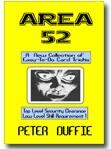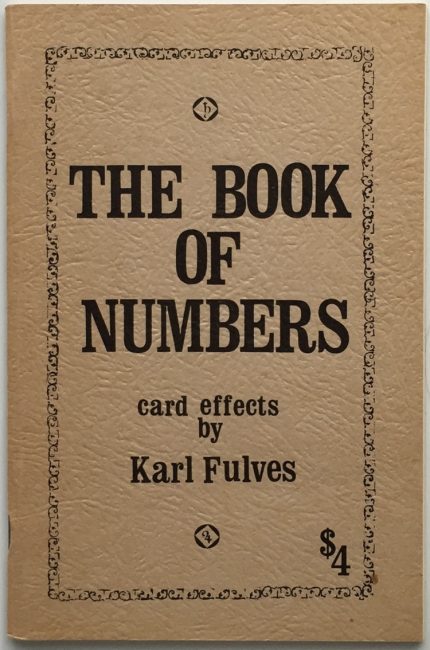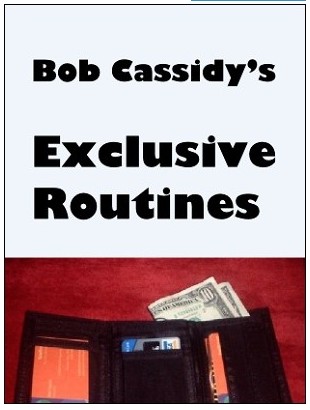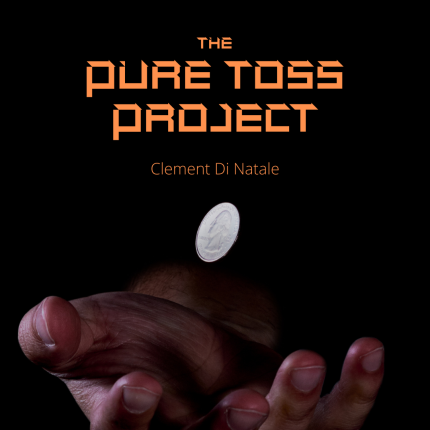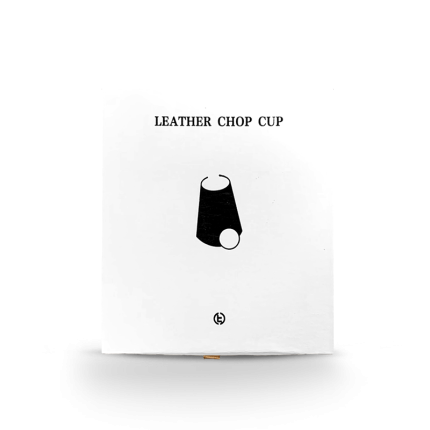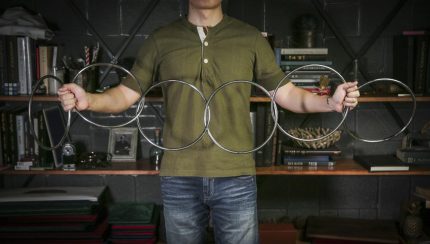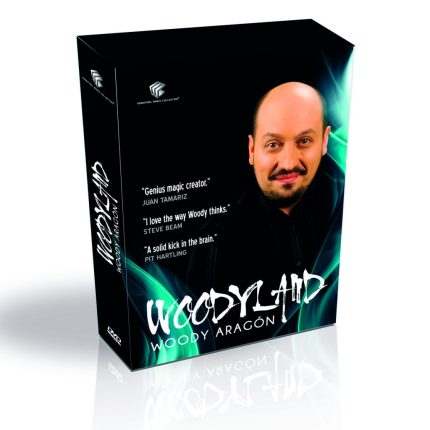CONTENTS & EFFECTS
DECK DISCERPTION: Two cards are selected and returned. First, the deck splits into reds and blacks. Then the red selection is found reversed in the centre of the red cards. And, the black selection….oops, both selections were red? No problem, the other selection is found to be the only stranger in the blacks.
AUTOMATED DIAMONDS: An attempt to attain the effect of Alex Elmsley’s “Diamond Cut Diamond” without any moves, and without touching the deck. This uses the old Principle Nine Force.
MORE DISCERPTION: Spectator A shuffles 10 red cards and spectator B shuffles 10 black cards. After each make a selection – their cards magically appear among the opposite colours.
HOFZINSER THE AMBITIOUS: The Aces lie face up on the table. A card is selected then lost in the deck. You pick up the Aces and insert them into different parts of the deck, then square all. The Aces rise to the top, with one exception. The Ace that was the same suit as the selection now IS the selection.
SEE YA LATER ELEVATOR: This simple Elevator routine is close relative to “Hellraiser” (See Effortless Card Magic). This uses more cards and offers a different finish.
WISH IT WAS LATER: Staying with the Elevator genre – the genesis of this routine lies in a Royal Marriages effect that I published some time ago. Here, two black Jacks rise through the deck, then a spectator cuts them into the deck whereupon they locate two previously selected cards.
BLENDID: You give two spectators each a packet of four cards and you have a similar packet. Each packet contains two black cards and two red cards. The idea is simple – you place one card face down on the table, and both spectators place one of their cards on top. The idea is get three cards all of the same colour. The only problem is that neither of you are allowed to look at the faces of your cards. However, a 100% percent colour match is guaranteed.
CANNY FAIL: This effect is a presentation for a principle devised by both Eddie Joseph and Ed Marlo (Automatic Placement).
DREAMLAND: Four spectators each select a card then the four selections are lost back into the deck. The four Kings are now placed face down on the table and mixed. Each spectator in turn selects a King and each King is pushed face up into the face down deck. Finally the deck is spread across the table to reveal that beside each face up King is a selected card, also face up! This is a reworking of a trick I published in Abracadabra called “By Royal Command.”
SHORT TERM: To begin you write a prediction on a piece of paper, which you fold and leave in the care of a member of the audience. Next, you shuffle your deck, give it to a spectator and ask him to cut it into five random piles. The top card of each pile is removed and the rest of the deck is discarded. Using his name (or if you know his name, he can use another) he eliminates four cards. The fifth card is turned over – it might be the Jack of Spades. When your prediction is revealed, it predicts the Jack of Spades!
RATHER ABRUPT: You cut off about half the deck and a spectator cuts off a portion and counts them to get a secret number. He now uses this value to make a selection. Your back is turned as he makes the selection. You now say that you will try to find the card, and you proceed to attempt to do so. However, a sudden change of plan results in the selection magically appearing in your pocket! ….and they thought this was a mathematical card trick!!
FLABBERGUSTED: Two cards are chosen and lost back into the pack. You turn over the top card which proves to be a random one. You give it to the first spectator and ask him to stab it into the pack in an attempt to put it right next to his selection. He tries twice and fails. However, when he turns the random card over he is surprised to find that it has transformed into his selected card! Finally you hand this card to the second spectator and ask him to blow on the card – when he turns it over it has transformed into his card!
WHERE IT’S AT: A prediction effect that is completely impromptu and can be done with any old deck. It was inspired by Roy Walton’s “Almost Impromptu” from The Devil’s Playthings and The Complete Walton Vol.1. The Rusduck Stay Stack principle is used but there is no prearranging of cards. You need a scrap of paper on which you will write the name of a card.
PHANTOMESQUE: This came about after reading Les (The Phantom) Johnson’s “Time Zone” in Abacus, issue No.3, Vol.7


